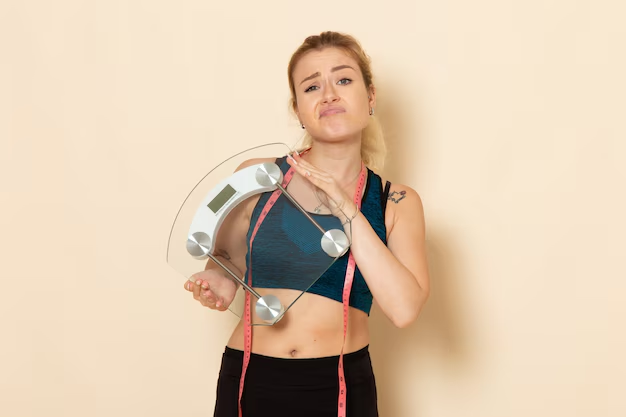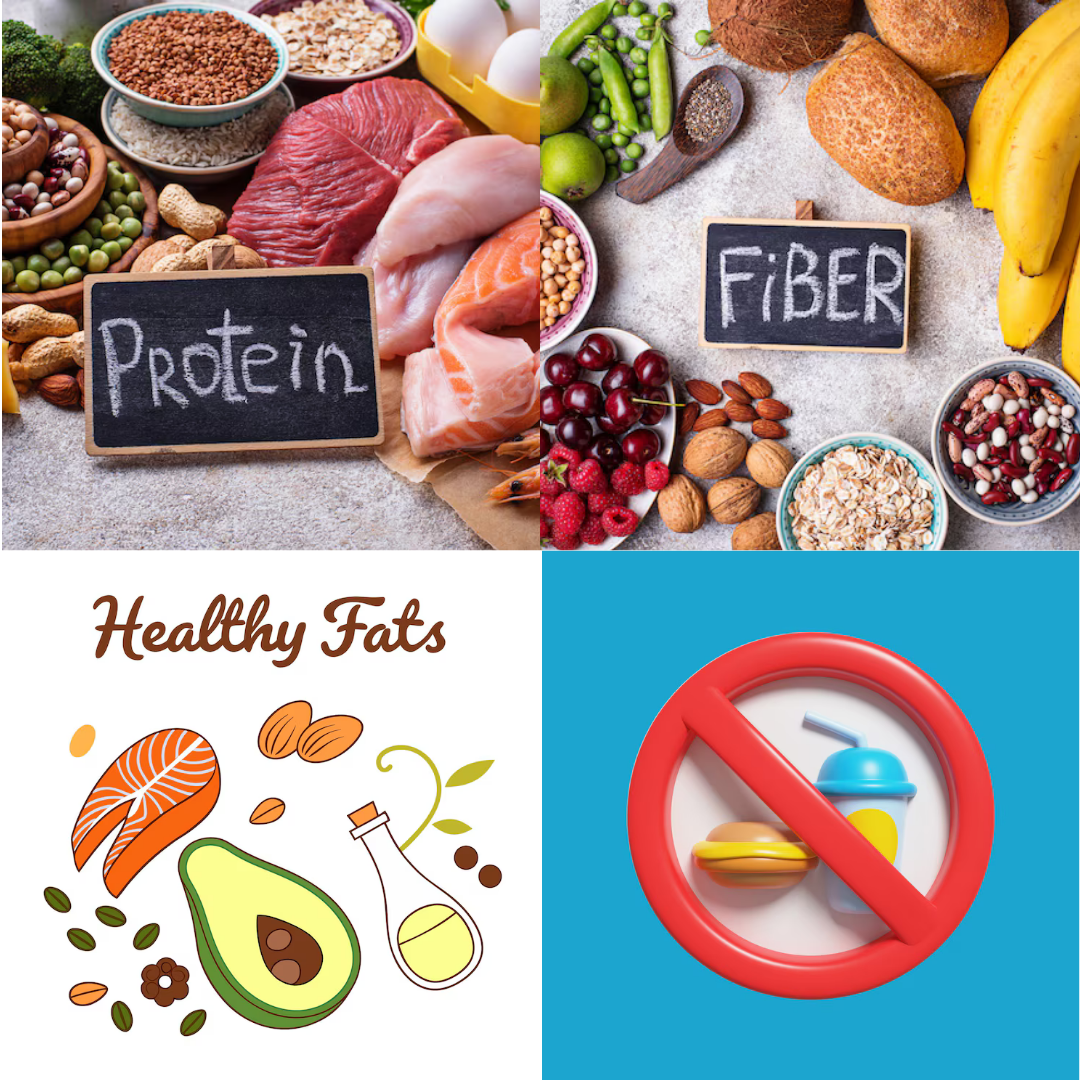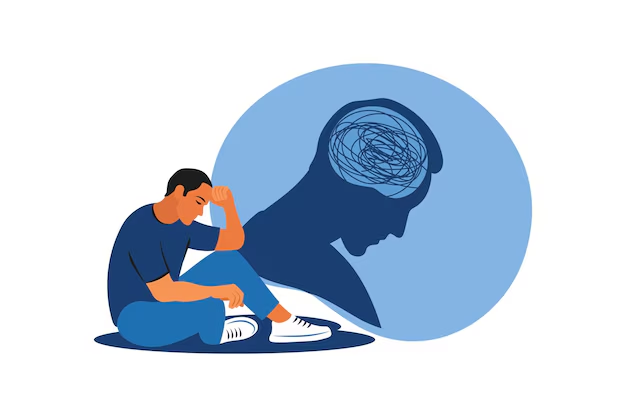Losing weight is more than just cutting calories or working out intensely for a short time. It’s about creating habits that support a healthy lifestyle in the long run. Quick fixes might show results temporarily, but lasting change comes from a steady and balanced approach.
The best way to lose weight involves understanding your body, eating the right foods, and staying active in a way that fits your life. It’s important to make small, smart choices each day—like choosing healthy meals, getting enough sleep, and managing stress. These daily habits help you stay on track and feel good.
Staying motivated is also key to long-term success. Set realistic goals and celebrate small wins along the way. With time, dedication, and consistency, you’ll not only lose weight but also feel stronger and more confident. Remember, the best way to lose weight is the one that helps you build a healthier and happier version of yourself.
1. Understanding the Fundamentals of Weight Loss
To kickstart any weight loss journey, it’s vital to understand the basic principle behind it. At its core, weight loss is simply burning more calories than you consume. Your body uses stored fat as fuel to make up the energy deficit.

Key Concepts:
Caloric Deficit: One of the best ways to lose weight is by creating a caloric deficit. This means your body burns more calories than you consume. You can achieve this either by eating fewer calories through healthier food choices or by increasing your physical activity to burn more. A consistent calorie deficit over time helps your body use stored fat for energy, leading to gradual and sustainable weight loss.
Macronutrient Balance: Another important factor in the best way to lose weight is maintaining a good balance of macronutrients—carbohydrates, proteins, and fats. Each plays a unique role in supporting your health. Protein helps keep your muscles strong, even when you’re losing fat. Carbohydrates provide energy, and fiber from carbs helps you feel full. Healthy fats are essential for brain health and hormone balance, making them a key part of any weight loss plan.
Metabolism: Your metabolism affects how quickly your body burns calories, which plays a big role in weight loss. Things like age, genetics, and daily activity levels all influence your metabolic rate. A faster metabolism can help you burn more calories throughout the day. Supporting your metabolism through regular movement, strength training, and proper nutrition is one of the best ways to lose weight effectively and keep it off.
How to Create a Caloric Deficit
A great starting point is determining how many calories your body burns at rest (your basal metabolic rate, or BMR) and how much additional energy you expend through daily activities. Use an online TDEE (Total Daily Energy Expenditure) calculator to estimate how many calories you burn each day. Then, aim for a calorie deficit of 500 to 750 calories per day, which generally results in a safe weight loss of 1–2 pounds per week.
Building a Healthy, Balanced Diet
A well-balanced diet is not about starving or avoiding all your favorite foods. Instead, it’s about giving your body the right nutrients it needs to stay healthy and energized. Eating a mix of fruits, vegetables, lean proteins, whole grains, and healthy fats helps you feel full and satisfied. You don’t have to feel restricted or stressed about food. The best way to lose weight is to make smart, balanced choices that you can maintain over time. This approach supports both weight loss and overall well-being in a natural and healthy way.

a. Emphasize Protein
Protein plays a key role in any effective weight loss plan. It helps repair and build muscles, especially when combined with regular exercise. Protein also keeps you feeling full for a longer time, which can reduce cravings and help you avoid overeating. This makes it easier to stay on track with your goals and maintain a healthy eating routine.
Including protein in your daily meals is one of the best ways to lose weight in a healthy and sustainable way. Foods rich in protein—such as eggs, chicken, fish, beans, lentils, and Greek yogurt—can support your weight loss journey. When paired with balanced nutrition and physical activity, a high-protein diet helps you burn fat while keeping your muscles strong and your energy levels up.
Lean meats (chicken, turkey)
Fish and seafood
Eggs
Plant-based options (tofu, tempeh, legumes)
Low-fat dairy (Greek yogurt)
b. Include More Fiber
Fiber is an important part of a healthy diet and plays a big role in digestion. It helps keep your digestive system working smoothly and supports regular bowel movements. Fiber also helps control blood sugar levels by slowing down how quickly sugar is absorbed into your bloodstream. This can help prevent spikes and crashes in energy, keeping you feeling steady throughout the day.
Including more fiber in your meals is one of the best ways to lose weight. It helps you feel full for longer, which can reduce the urge to snack or overeat. Foods rich in fiber include fruits, vegetables, whole grains, beans, lentils, and nuts. Adding these to your daily meals supports weight loss while keeping your body healthy and well-nourished.
Vegetables, especially leafy greens
Fruits like berries, apples, and pears
Whole grains (oats, quinoa, brown rice)
Legumes such as lentils, chickpeas, and beans
c. Don’t Skip Healthy Fats
Although fats are high in calories, healthy fats are an essential part of a balanced diet. They play a key role in supporting your body’s cells, protecting your organs, and helping you absorb important vitamins like A, D, E, and K. Including the right kinds of fats in your meals can actually support your health rather than harm it.
Choosing healthy fats is one of the best ways to lose weight in a balanced and long-term way. These fats help you feel full and satisfied, which can prevent overeating and support your weight loss goals. Good sources of healthy fats include avocados, olive oil, nuts, seeds, and fatty fish like salmon. Adding small portions of these to your meals can keep your diet both nutritious and enjoyable.
Avocados
Nuts and seeds
Olive oil and coconut oil
Fatty fish like salmon and sardines
d. Limit Processed Foods and Refined Sugars
Processed foods are often loaded with unhealthy fats, added sugars, and artificial ingredients that can slow down your progress. These foods usually have a lot of calories but offer little nutritional value. Eating them regularly can lead to weight gain, low energy, and poor health over time.
Focusing on whole, natural foods is one of the best ways to lose weight. Whole foods like fruits, vegetables, whole grains, lean proteins, and healthy fats provide the nutrients your body needs without the extra calories. Try to cut back on sugary snacks, baked goods, soft drinks, and fast food. By choosing fresh, unprocessed meals, you can fuel your body properly, feel more satisfied, and stay on track with your weight loss goals in a healthy and lasting way.
e. Control Your Portions
Even healthy foods can lead to weight gain if eaten in large amounts. Just because something is good for you doesn’t mean you can eat unlimited quantities. Portion control is important to help you manage how much you eat and avoid taking in too many calories without realizing it.
Practicing portion control is one of the best ways to lose weight in a smart and balanced way. Simple habits like using smaller plates, measuring your servings, or tracking your meals can make a big difference. These steps help you become more aware of how much you’re eating and keep you focused on your goals. With consistent practice, portion control supports steady weight loss without making you feel restricted.
f. Stay Hydrated
Drinking enough water each day is important for keeping your body healthy and your metabolism working properly. When you don’t drink enough water, your body can become dehydrated, which may slow down important functions. Sometimes, your body may even confuse thirst with hunger, causing you to eat when you actually just need fluids.
Staying hydrated is one of the best ways to lose weight naturally. Water helps you feel full, supports digestion, and keeps your energy levels up. Try to drink at least 8 glasses of water daily, and even more if you’re physically active or in a warm environment. Making water a regular part of your daily routine can help you stay on track with your weight loss goals and support your overall well-being.
Get Moving with Regular Exercise
Exercise is a vital part of the best way to lose weight. It helps you burn calories, boost your metabolism, and improve your overall health. Regular physical activity also enhances your mood and keeps you energized.

For effective weight loss, combining both cardio and strength training is key. Cardio helps burn calories, while strength training builds muscle and increases metabolism. Together, these exercises provide a well-rounded approach to weight loss, helping you achieve long-lasting results. Make exercise a regular habit to support your weight loss goals and improve your overall health.
a. Cardiovascular Exercise
Cardio exercises, such as walking, running, cycling, and swimming, are some of the best ways to lose weight. These activities help you burn calories effectively and improve your cardiovascular health. Aim for at least 150 minutes of moderate-intensity cardio per week, or 75 minutes of vigorous-intensity exercise.
The more cardio you include in your routine, the more calories you’ll burn, which supports weight loss. Incorporating regular cardio sessions can help you reach your weight loss goals faster while also boosting your overall fitness and energy levels.
High-Intensity Interval Training (HIIT): HIIT is a time-efficient workout that alternates between intense bursts of exercise and short recovery periods. It helps torch fat while increasing your metabolism even after the workout ends.
b. Strength Training
Strength training is one of the best ways to lose weight, as it helps build lean muscle. Unlike cardio, which burns calories during exercise, muscle increases your resting metabolic rate, meaning you’ll burn more calories even when you’re not working out.
Aim for at least two to three strength training sessions per week, focusing on all major muscle groups. This will help you build muscle, boost metabolism, and support long-term weight loss. Combining strength training with cardio offers a balanced approach to achieving your weight loss goals.
You don’t need heavy weights to build muscle. Bodyweight exercises like push-ups, squats, lunges, and planks are great alternatives.
c. Flexibility and Recovery
Rest and flexibility exercises are an important part of the best way to lose weight. After strength training, your muscles need time to recover and repair. This process is essential for building strength and preventing injury.
Incorporating yoga, stretching, and getting enough sleep helps promote muscle recovery and supports overall well-being. These practices help improve flexibility, reduce soreness, and ensure your body is ready for the next workout. A balanced routine of exercise, rest, and recovery is key to achieving lasting weight loss and maintaining a healthy lifestyle.
d. Daily Movement Matters
In addition to regular workouts, staying active throughout the day is one of the best ways to lose weight. Small, everyday activities can add up and contribute to your overall calorie burn. Simple actions like walking more, gardening, or taking the stairs help keep your body moving and boost your metabolism.
By incorporating these little activities into your routine, you can increase your daily energy expenditure without needing extra time for formal exercise. Consistency in staying active throughout the day supports your weight loss goals and improves overall health.
Focus on Mental Well-Being and Motivation
The mental aspect of weight loss is just as crucial as the physical one. Stress, emotional eating, and negative thoughts can quickly undo even the best efforts. A healthy mindset is key to staying committed to your goals and overcoming obstacles. It’s important to recognize the emotional triggers that lead to overeating and address them in a positive way.

To stay on track mentally, practice mindfulness, set realistic goals, and celebrate small victories along the way. Developing a positive outlook, practicing stress management techniques like meditation, and surrounding yourself with supportive people will help you stay focused. A balanced mental and physical approach is one of the best ways to lose weight and achieve lasting results.
a. Set Realistic, Achievable Goals
Instead of focusing only on the number on the scale, set more meaningful goals like fitting into your favorite jeans, boosting your energy, or lifting heavier weights. These non-scale victories offer a broader perspective on your progress and keep you motivated.
Focusing on these personal milestones is one of the best ways to lose weight. It shifts your attention from temporary numbers to long-term improvements in your health and fitness. Celebrating these achievements helps keep you motivated and aligned with your overall wellness goals, making the journey more rewarding.
b. Practice Mindful Eating
Mindful eating is one of the best ways to lose weight by focusing on the sensory experience of eating. Pay attention to how your food smells, tastes, and how it makes you feel. This helps you stay connected to your body’s hunger and fullness cues.
By practicing mindful eating, you can reduce overeating and improve satisfaction from your meals. Slowing down and savoring each bite allows you to enjoy your food more, making it easier to make healthier choices and stay on track with your weight loss goals.
c. Manage Stress Effectively
Chronic stress is one of the best ways to lose weight when managed effectively. It can lead to emotional eating and cause your body to store excess fat, especially in the abdominal area. Managing stress is essential for overall health and weight loss.
To reduce stress, try methods like meditation, journaling, taking a walk, or spending time with loved ones. These activities can help calm your mind, prevent emotional eating, and support your body’s natural ability to burn fat. Managing stress improves both your mental and physical health, making weight loss easier.
d. Prioritize Sleep
Sleep is one of the best ways to lose weight, as it plays a crucial role in regulating hunger hormones. When you don’t get enough sleep, these hormones can become imbalanced, increasing your cravings and making you more likely to overeat.
To support your weight loss goals, aim for 7–9 hours of quality sleep each night. Getting enough rest helps your body function at its best, keeping your metabolism efficient and your hunger in check. Prioritizing sleep is an easy but powerful step toward reaching your weight loss objectives.
Consistency Is Your Best Friend
Consistency is the best way to lose weight and achieve long-term success. While quick results can happen early on, sustainable weight loss comes from making gradual, consistent changes to your lifestyle. To stay consistent, set realistic goals, track your progress, and make small adjustments as needed. With patience and persistence, you’ll see lasting results.
a. Track Your Progress
Tracking your progress is one of the best ways to lose weight and stay motivated. By keeping a food diary or using a fitness app to log your meals and workouts, you can gain insight into your habits and make adjustments when needed. This helps you stay focused and on track with your goals.
Regularly checking in on your progress allows you to see how far you’ve come and identify areas for improvement. It’s a simple yet effective tool to stay accountable, adjust your routine, and ensure you’re moving in the right direction. By staying consistent with tracking, you’re more likely to maintain your weight loss journey and achieve lasting results.
b. Stay Positive and Patient

There will be bumps along the way when working toward your weight loss goals, such as plateaus, slip-ups, and moments when motivation fades. These are normal parts of the journey, and it’s important not to get discouraged. Stay patient and remind yourself that setbacks are temporary.
The best way to lose weight is to focus on long-term goals and trust the process. Small, consistent changes in your lifestyle will add up over time and lead to lasting results. Stay positive, keep going, and celebrate your progress, no matter how small. With persistence and a positive mindset, you can achieve your weight loss goals.
Conclusion: Embrace the Journey
The best way to lose weight involves a balanced approach, focusing on sustainable habits rather than quick fixes. Start by creating a calorie deficit through a healthy, nutrient-dense diet. Prioritize whole foods, lean proteins, healthy fats, and fiber-rich options to keep you full and satisfied while avoiding processed and sugary foods.
Exercise plays a crucial role in weight loss. Combining cardiovascular activities like walking or cycling with strength training helps burn calories and preserve muscle mass. Consistent physical activity not only promotes weight loss but also improves overall health and boosts energy.
The best way to lose weight is through consistency and patience. Setting realistic goals, tracking progress, and staying motivated are key factors. Remember, weight loss is a journey, and maintaining a balanced, long-term approach is the most effective way to achieve lasting results.
FAQs
What is the best way to lose weight ?
The best way to lose weight involves a combination of a balanced diet, regular exercise, consistent sleep, and managing stress. Consistency, gradual changes, and focusing on overall health are key to long-term success.
How long will it take to see weight loss results ?
Results vary, but with consistent effort, you may start noticing changes in 2-4 weeks. Sustainable weight loss is gradual, and long-term progress is more important than quick fixes.
Can I lose weight without exercising ?
While exercise is highly beneficial, the best way to lose weight involves both a healthy diet and physical activity. You can lose weight by focusing on your nutrition and overall lifestyle, but combining it with exercise speeds up the process.
Is it safe to lose weight quickly ?
Rapid weight loss can be harmful and may not be sustainable. It’s safer and more effective to aim for gradual weight loss of 1-2 pounds per week to maintain your health and avoid regaining the weight.
How can I stay motivated during my weight loss journey ?
Set realistic goals, track your progress, celebrate small wins, and focus on non-scale victories. Surrounding yourself with support and maintaining a positive mindset will also help you stay motivated.

